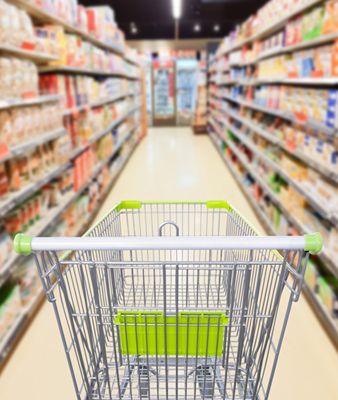Free Case Evaluation
You will never be charged a fee unless a recovery is made for you.
Trustwell Law is accepting cases nationwide on behalf of people who were diagnosed with type 2 diabetes or nonalcoholic fatty liver disease (NAFLD) before age 21 whose diets included ultra-processed foods (UPF). Once rare diagnoses in young people, type 2 diabetes or nonalcoholic fatty liver disease (NAFLD) are becoming far more common.
If you, your child, or a loved one has type 2 diabetes or nonalcoholic fatty liver disease and were diagnosed before turning 21, call us at 800-796-1636 or submit your case details online and someone will contact you shortly. You pay nothing unless your lawsuit is successful and you receive compensation.

At Trustwell Law, our experienced attorneys take a personalized, compassionate approach. We cut through the legalese and partner with our clients. We also have access to the expertise, resources, and manpower to fully investigate each case and fight for and with our clients to get the justice they deserve.
Ultra-processed foods (UPFs) are highly altered foods. They are made mostly from substances extracted from foods, such as fats, starches, added sugars, and hydrogenated fats. They contain added ingredients like preservatives, sweeteners, emulsifiers, and artificial colors and flavors or stabilizers. Frozen meals, soft drinks, hot dogs and cold cuts, fast food, packaged cookies and cakes, and salty snacks are examples of ultra-processed foods.
Ultra-processed foods are designed to be hyper-palatable (to trigger the brain’s reward system) and highly addictive. UPFs:
Ultra-processed foods contribute to severe health issues, especially in children.
Studies show that ultra-processed foods make up more than 73 percent of the food in the United States’ food supply and 67 percent of American children’s diets on average. At least 14 percent of adults and 12 percent of children in the U.S. allegedly demonstrate behavioral indicators of addiction in response to ultra-processed foods.
In the 1980s, major tobacco companies, already expert at developing addictive tobacco products, entered the food industry. They applied addiction science from cigarettes to food products. These companies:
For several years now, studies have linked the consumption of ultra-processed foods with type 2 diabetes. One review and meta-analysis of longitudinal studies screened a total of 2272 records, of which 18 studies, including almost 1.1 million individuals, were included. More than 70 percent showed a positive association between ultra-processed foods and the risk of diabetes.
Having more ultra-processed foods laden with additives—even more than just the presence of sugar and salt in the diet—can lead to higher average blood glucose levels over a period of just months, a measure called HbA1C.
Nonalcoholic fatty liver disease (NAFLD) is a condition where fat builds up in the liver due to factors other than heavy alcohol consumption. Multiple large-scale prospective studies have found a connection between UPF consumption and NAFLD. Studies also suggest that one-third to two-thirds of people with type 2 diabetes have NAFLD.
If you, your child, or a loved one were diagnosed with type 2 diabetes or nonalcoholic fatty liver disease before turning 21, contact us to discuss filing an ultra-processed food lawsuit. The consultation is free, and if we take your case, you pay us nothing unless you win your case.
Sources
American Diabetes Association. (n.d.). Understanding Type 2 Diabetes. Retrieved from https://diabetes.org/about-diabetes/type-2
Chen, Z., et al. (2023, July 1). Ultra-Processed Food Consumption and Risk of Type 2 Diabetes: Three Large Prospective U.S. Cohort Studies. Retrieved from https://pubmed.ncbi.nlm.nih.gov/36854188/
Delpino, F., et al. (2022, August 10). Ultra-processed food and risk of type 2 diabetes: a systematic review and meta-analysis of longitudinal studies. Retrieved from https://pubmed.ncbi.nlm.nih.gov/34904160/
Grinshpan, L., et al. (2023, November 17). Ultra-processed food consumption and non-alcoholic fatty liver disease, metabolic syndrome and insulin resistance: A systematic review. Retrieved from https://pubmed.ncbi.nlm.nih.gov/38234408/
Harvard Medical School News Brief. (2020, March 1). Heavily processed foods tied to diabetes. Retrieved from https://www.health.harvard.edu/staying-healthy/heavily-processed-foods-tied-to-diabetes.
Henney, A., et al. (2023, May 10). Ultra-Processed Food Intake Is Associated with Non-Alcoholic Fatty Liver Disease in Adults: A Systematic Review and Meta-Analysis. Retrieved from https://pmc.ncbi.nlm.nih.gov/articles/PMC10224355/#:~:text=Association%20between%20Ultra%2DProcessed%20Food,%25%20(p%20%3D%200.71)).
Hudson, E., et al. (2024, October 8). Degree of Food Processing Is Associated With Glycemic Control in African American Adults With Type 2 Diabetes: Findings From Texas Strength Through Resilience in Diabetes Education Clinical Trial. Retrieved from https://www.jandonline.org/article/S2212-2672(24)00877-3/abstract
Liu, Z., et al. (2023, September 28). Association between ultra-processed foods consumption and risk of non-alcoholic fatty liver disease: a population-based analysis of NHANES 2011-2018. Retrieved from https://pubmed.ncbi.nlm.nih.gov/36522692/
Mayo Clinic. (n.d.). Type 2 diabetes. Retrieved from https://www.mayoclinic.org/diseases-conditions/type-2-diabetes/symptoms-causes/syc-20351193
McManus, K. (2020, January 20). What are ultra-processed foods and are they bad for our health? Retrieved from https://www.health.harvard.edu/blog/what-are-ultra-processed-foods-and-are-they-bad-for-our-health-2020010918605
Monteiro, C., et al. (2019, February 12). Ultra-processed foods: what they are and how to identify them. Retrieved from https://pmc.ncbi.nlm.nih.gov/articles/PMC10260459/
National Institutes of Health, National Institute of Diabetes and Digestive and Kidney Diseases. (n.d.). Definition & Facts of NAFLD & NASH. Retrieved from https://www.niddk.nih.gov/health-information/liver-disease/nafld-nash/definition-facts
Robards-Forbes, E. (2024, October 17). Ultra-Processed Foods Pose Unique Dangers for People With Type 2 Diabetes. Retrieved from https://cns.utexas.edu/news/research/ultra-processed-foods-pose-unique-dangers-people-type-2-diabetes
Srour, B., et al. (2019, December 16). Ultraprocessed Food Consumption and Risk of Type 2 Diabetes Among Participants of the NutriNet-Santé Prospective Cohort. Retrieved from https://jamanetwork.com/journals/jamainternalmedicine/fullarticle/2757497
Zhoa, L., et al. (2023, September). Higher ultra-processed food intake was positively associated with odds of NAFLD in both US adolescents and adults: A national survey. Retrieved from https://journals.lww.com/hepcomm/fulltext/2023/09010/higher_ultra_processed_food_intake_was_positively.17.aspx
You will never be charged a fee unless a recovery is made for you.